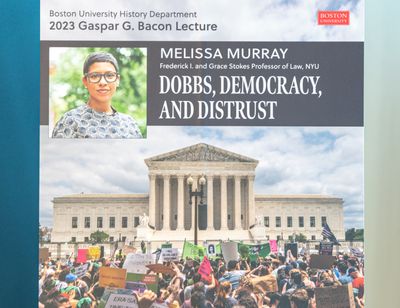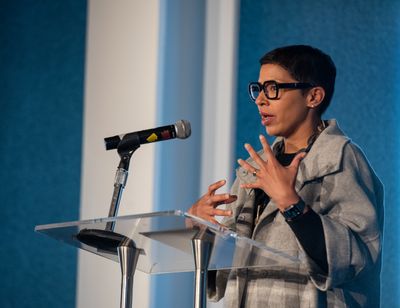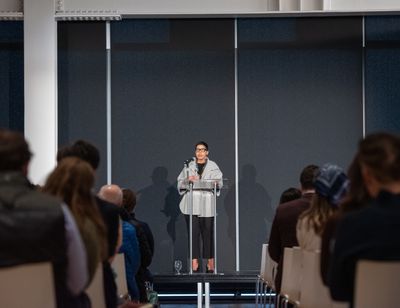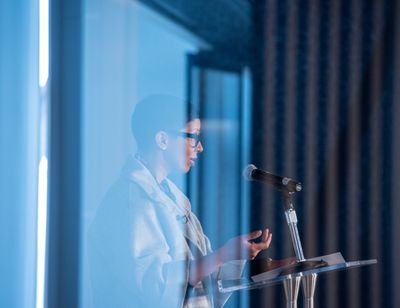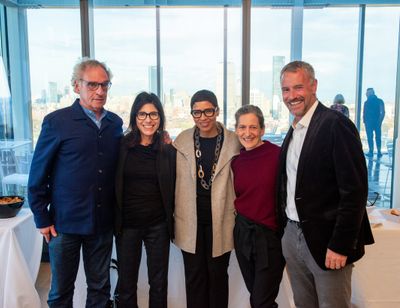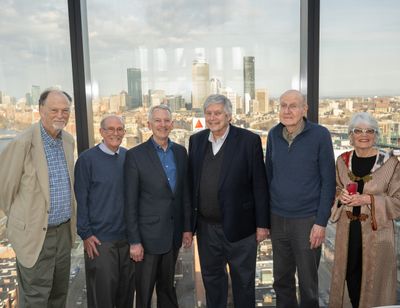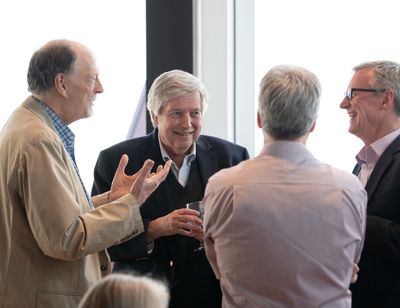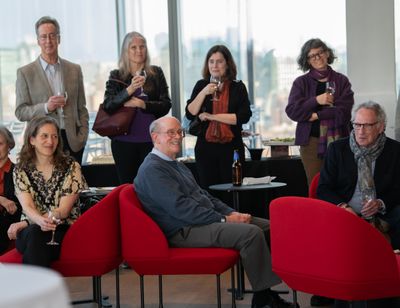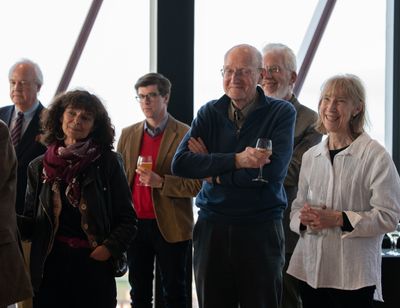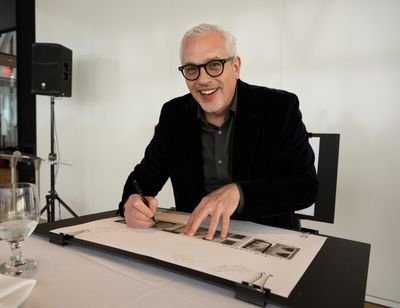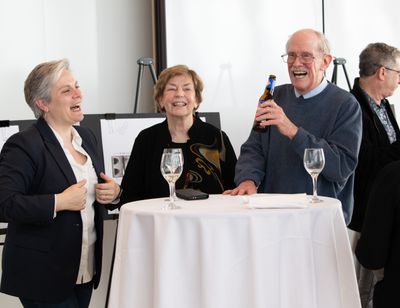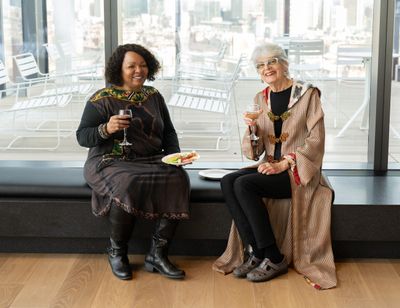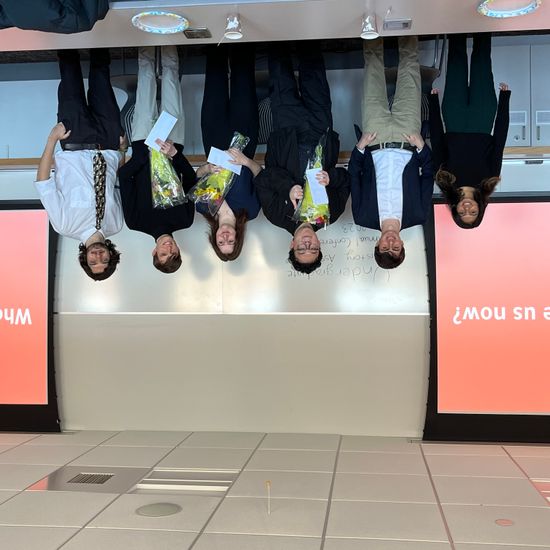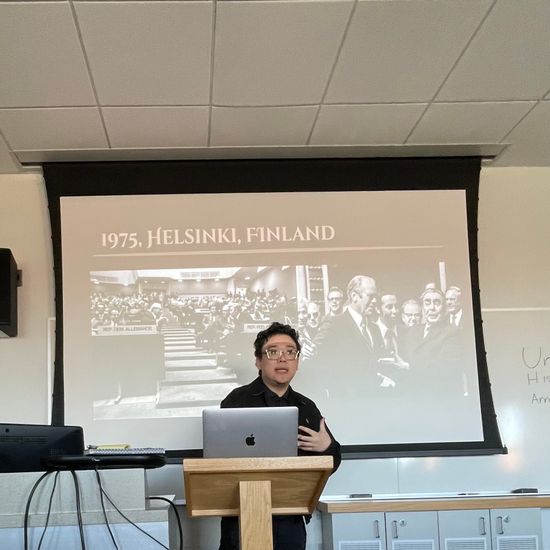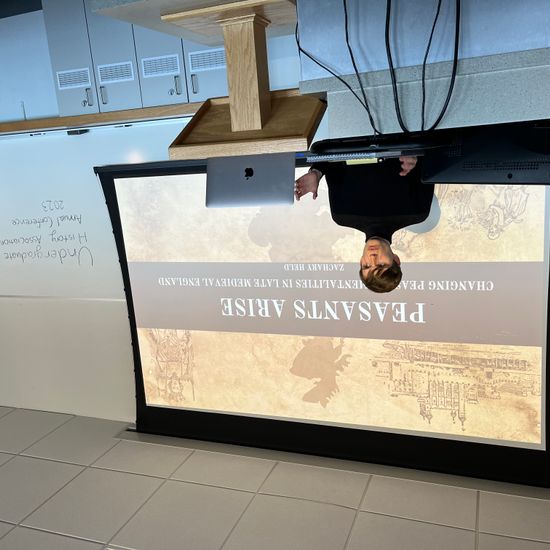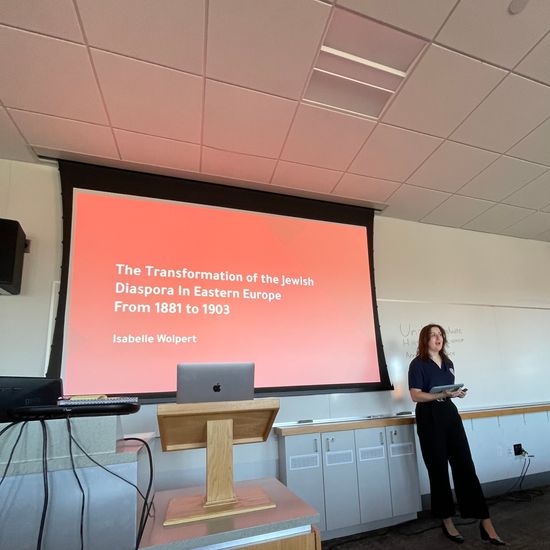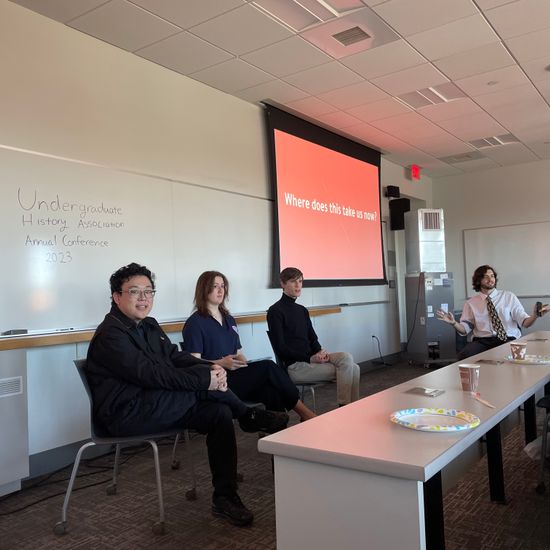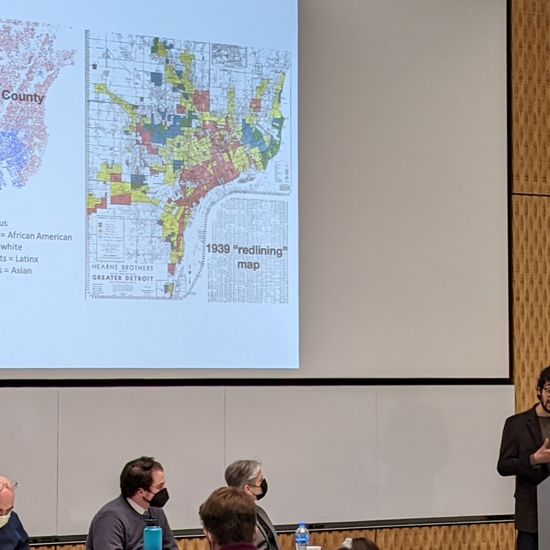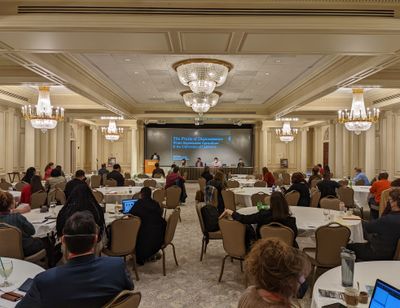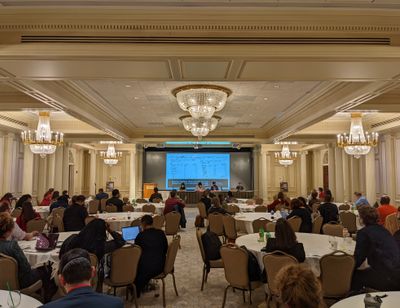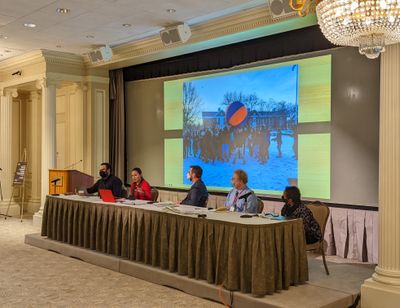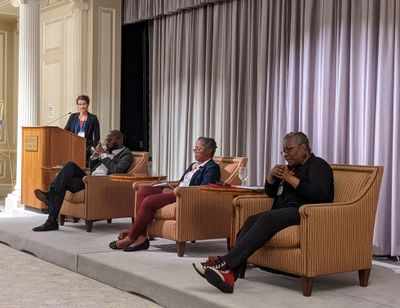2023
2023 History Convocation
Professor Melissa Murray of the New York University School of Law was the guest of the BU History Department on April 27, 2023 for its Gaspar G. Bacon Lecture. Her talk, “Dobbs, Democracy, and Distrust,” outlined the majority’s reasoning in the Supreme Court’s 2022 decision overturning Roe v. Wade. Professor Murray focused on the argument advanced in Justice Alito’s opinion that the 1973 Roe decision disrupted due democratic deliberation–a conception of democracy, she observed, that is incoherent and myopic. “The most disappointing aspect of the Dobbs decision,” she stated, “is its cynicism.” The Bacon Lecture is made possible by an endowment established in the 1940s. Its benefactor, Gaspar G. Bacon, was a Boston attorney, President of the Massachusetts State Senate, Lieutenant Governor of Massachusetts, and a candidate for Governor in 1934. He was a lecturer at Boston University and is the author of The Constitution of the United States in Some of Its Fundamental Aspects (1928). He specified that this annual lecture be devoted to the U.S. Constitution.2023 Gaspar G. Bacon Lecture
History Faculty Retirement Party
The Undergraduate History Association’s Annual Conference took place on Sunday, April 2nd. This year’s theme was Dark and Golden Ages. At this academic symposium, three students presented the following papers:UHA Annual Conference
2022
On April 8th and 9th, graduate historians from across the country gathered at Boston University for the long-awaited 12th APHI Graduate Student Conference: Making the American City. Participants were treated to good food, lively discussion, and the latest from our presenters, including BU’s own Madeline Webster and Charley Binkow. Day one was masterfully concluded with a keynote speech by Robert O. Self on the Hydrocarbon Middle Class and a reception hosted by the BU Initiative on Cities The organizers wish to thank all the presenters, commentators, moderators, the student organizing committee, and the staff members who made this possible. Special thanks to Cady Steinberg and Molly German in the BU History Department for their invaluable assistance.2022 APHI Graduate Conference
On Saturday April 2nd, 2022, the Undergraduate History Association hosted their Annual Conference: Disruption and Destruction. Four members of the organisation were selected to conduct research and present their findings to an audience of history students and professors. Inspired by the theme “Disruption and Destruction,” participants proposed, researched and wrote their own papers with the help of mentors from UHA. This year’s papers were titled “A Study on America’s History of Immigrant Intolerance” by Camryn Millet, “More Than Collateral Damage: A Crossnational Comparison of Cultural Genocide in Nazi Germany, Mao’s China, and the Islamic State” by Emanne Khan, “The Grim Fantasies of Ethnic Conquest: Generalplan Ost” by Baron Schafer, and “Magic and Witchcraft in Medieval and Early Modern Europe: An Eccentric Disturbance and A Modern Misunderstanding” by Demian Choi.UHA Annual Conference
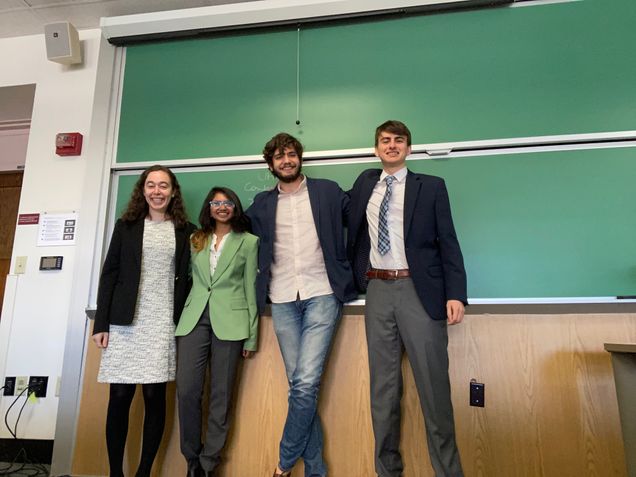
In March, the BU History Hepartment hosted the third annual BoCa LonGa US history workshop. A collaboration among six universities around the United States and across the Atlantic, BoCa LonGa assembles scholars of US history from Boston (BO), California (CA), London (LON), and Georgia (GA) to share new scholarship in progress and develop intellectual collaboration across field and geographic boundaries. Gathering in person for the first time in several years, the conference featured in depth workshops focused on a pre-circulated chapter or article draft (for example, BU Professor Paula Austin presented a chapter from her current book project on policing, civil rights, and police reform) and traditional conference panels (Professor Andy Robichaud and grad student Charley Binkow joined those). The meeting also introduced a new kind of session: “Meet the Projects,” each of which gave five doctoral students from five different universities the chance to introduce—and receive feedback—on their doctoral dissertations. Doctoral candidates Jeanna Kinnebrew–“Sexuality, Philanthropy, and Social Control in Boston, 1928-1972”- and Henry Tonks—“Don’t Stop Thinking About Tomorrow: Remaking American Liberalism in an Age of Crisis, 1972-1992”– represented BU in those sessions. The fourth conference is scheduled for Spring 2023 at Stanford University in California.BoCa LonGa 2022
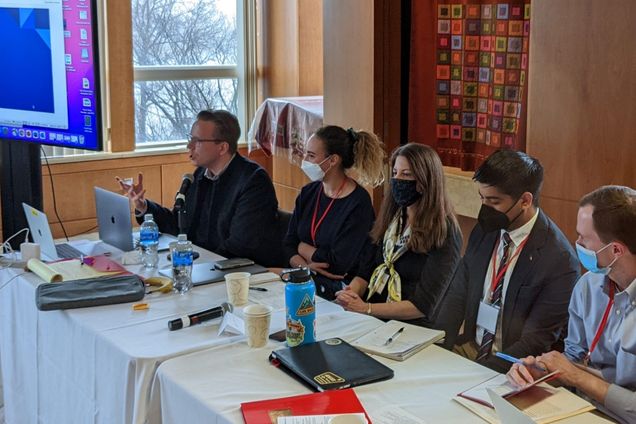
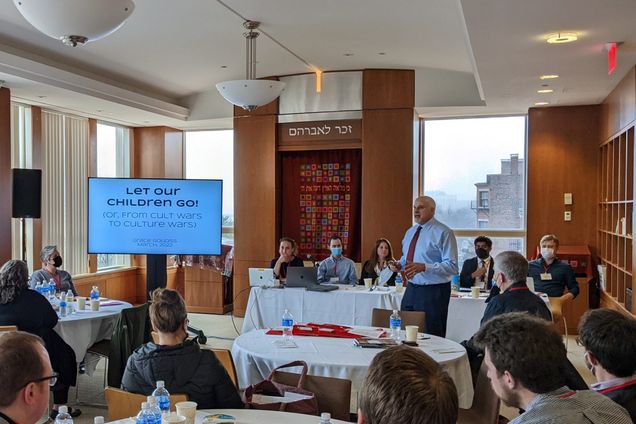
On March 17-18, 2022, the History Department, in conjunction with the African American Studies Program, hosted a symposium discussing the legacies of slavery and colonialism that persist within American universities. Several BU groups and individuals made this conference possible, especially through the generous funding of the “Emerging Scholars” program and the “Great Topics” program, two initiatives of BU’s Diversity and Inclusion office. Presentations included keynote speaker Craig Wilder (MIT Professor), three panels of junior scholars, and two roundtables of senior scholars.Critical University Studies -
The Legacies of Slavery and Settler Colonialism
2021
2021 Bacon Lecture: Manisha Sinha on “Abolitionist Feminism and the Long Nineteenth Amendment” Professor Manisha Sinha, the Draper Chair in American History at the University of Connecticut, examined the long genealogy of the Nineteenth Amendment in the history of abolitionist feminism. Professor Sinha revisited the Reconstruction debates over women’s suffrage to argue that rather than a setback, this period was a formative one in the emergence of women’s suffrage. The roots of the Nineteenth Amendment lie in the nineteenth century especially among those black and white women who refused to give up on the intersectional nature of the struggle for black and women’s rights.2021 Bacon Lecture: Manisha Sinha

2019
2019 Bacon Lecture: Martha S. Jones on “Birthright Citizenship: A History of Race and Rights” On April 24, 2019, the Boston University History Department hosted Martha S. Jones, Society of Black Alumni Presidential Professor at Johns Hopkins University for the 2019 Gaspar G. Bacon Lecture. Birthright Citizens tells how African American activists radically transformed the terms of citizenship for all Americans. Before the Civil War, colonization schemes and black laws threatened to deport former slaves born in the United States. Birthright Citizens recovers the story of how African American activists remade national belonging through battles in legislatures, conventions, and courthouses. They faced formidable opposition, most notoriously from the US Supreme Court decision in Dred Scott. Still, Martha S. Jones explains, no single case defined their status. Former slaves studied law, secured allies, and conducted themselves like citizens, establishing their status through local, everyday claims. All along they argued that birth guaranteed their rights. With fresh archival sources and an ambitious reframing of constitutional law-making before the Civil War, Jones shows how as the Fourteenth Amendment constitutionalized the birthright principle, black Americans’ aspirations were realized. The lecture is available to stream below:2019 Bacon Lecture: Martha S. Jones
